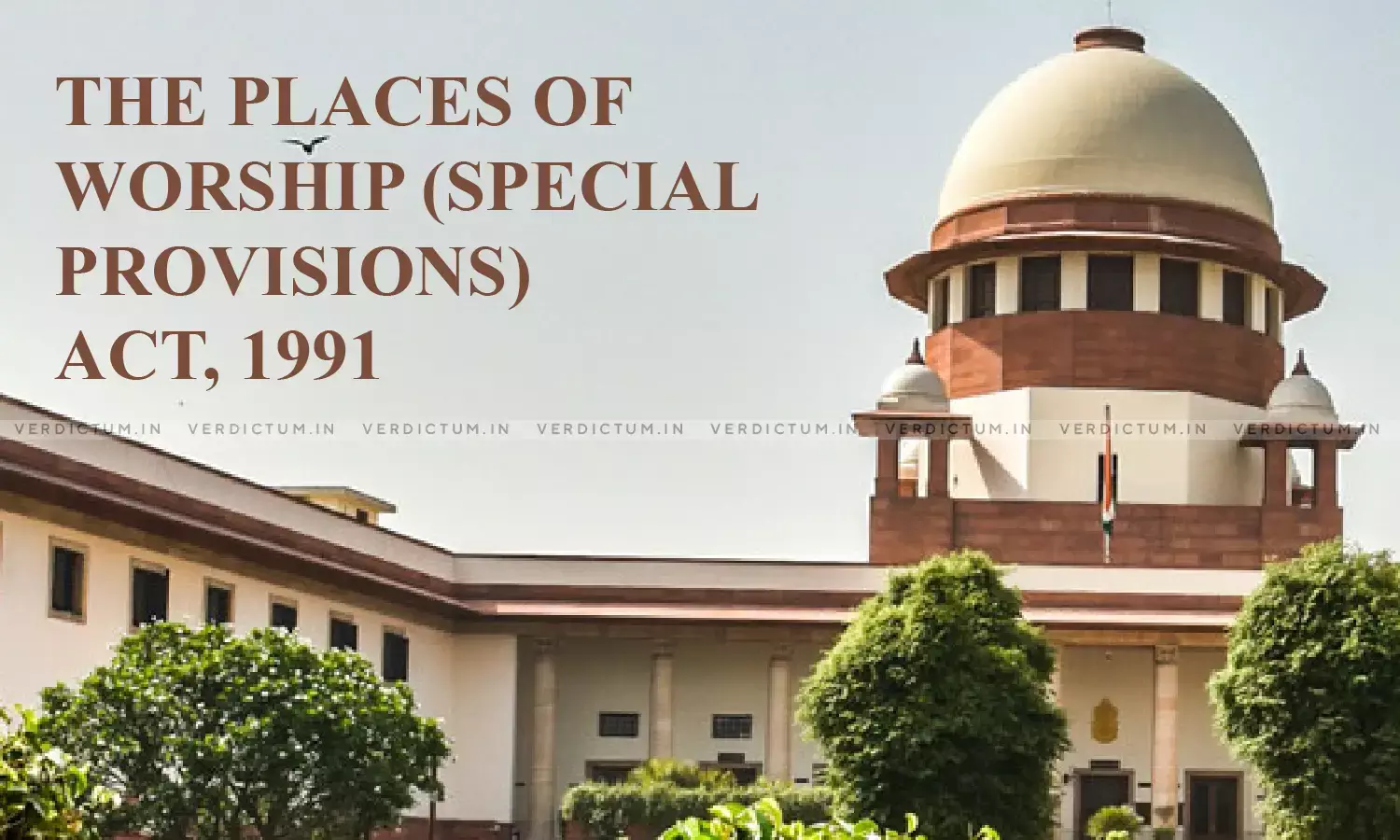Ashwini Upadhyay Who Has Challenged 'Places Of Worship Act' Moves SC Seeking Impleadment In Gyanvapi Case

Advocate Ashwini Kumar Upadhyay, whose challenge to the constitutionality of the Places of Worship Act is pending before the Supreme Court, has filed an application for impleadment in the Gyanvapi Mosque dispute case, stating that the Places of Worship Act of 1991 cannot govern the Kashi Vishwanath Temple-Gyanvapi Mosque issue.
Upadhyay had filed a Public Interest Litigation in the Apex Court challenging the constitutional validity of the Places of Worship Act, in October 2020 and the Court had issued notice on his plea. (read report)
Ashwini Upadhyay has stated in his application that, "only those places can be protected, which were erected or constructed in accordance with personal law of the person erected/constructed them, but places erected or constructed in derogation of the personal law, cannot be termed as a 'place of worship'. It is submitted that retrospective cutoff-date was fixed 15th August 1947 to legalize the illegal acts of barbaric invaders. Though, Hindu Law (Temple Character never changes) was 'Law in force' at the commencement of the Constitution by virtue of Article 372(1)."
Upadhyay also claims in his application that the religious character of the Temple does not change by demolition, its character can only be altered when the idols are replaced. He has stated that, "Temple's religious character does not change after the demolition of roof, walls, pillars, foundation and even offering Namaz. After the Pran Pratishtha of idol, A Temple is Always a Temple until the Idol is shifted to another temple with the rituals of Visharjan. Moreover, Religious Character of Temple (Place of Worship) & Mosque (Place of Prayer) is totally different. So, same Law can't be applied on both".
Upadhyay has stressed that the SLP filed before the Supreme Court is infructuous as the Places of Worship Act does not bar the determination of religious character. He mentions in the application that the Act is a penal Law so it must be interpreted literally, not purposively. Upadhyay also submits in his application that "The mosque constructed at temple land cannot be a mosque, not only for the reason that such construction is against Islamic law, but also on grounds that the property once vested in the deity continues to be deity's property and right of deity and devotees are never lost, howsoever long illegal encroachment continues on such property. Right to restore back religious property is unfettered and continuing wrong and injury may be cured by judicial remedy."
The Supreme Court had on Friday heard the Special Leave Petition regarding the Gyanvapi issue and had ordered that the Order 7 Rule 11 Application being tried in the subordinate court of Varanasi be sent to the District Judge, as the Court was of the opinion that a seasoned hand would be required to handle the matter. The Supreme Court also ordered that the 16th May order of the trial court would be subsumed by the 17th May order of the Supreme Court, i.e., the area where the Shivling was found was to be protected and Muslims would be allowed to offer Namaz and other religious observances. The Supreme Court also directed the District Magistrate to make an appropriate alternate arrangement for performing Wuzu.
Click here to read/download the application

